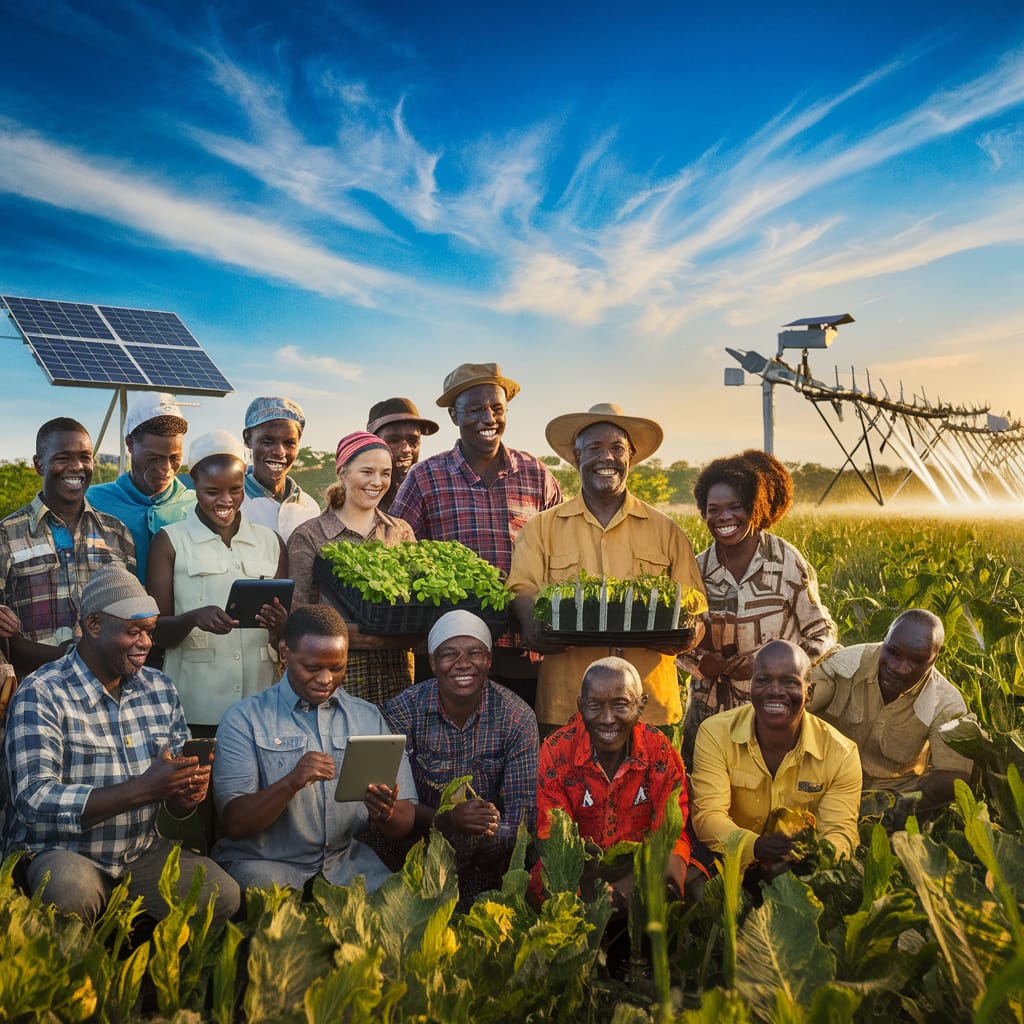Agriculture stands at the heart of Africa’s economic development, serving as a vital lifeline for millions. As the continent faces the dual challenges of population growth and climate change, innovative agricultural practices and sustainable farming methods are crucial to ensuring food security. This article delves into the transformative role of technology in African agriculture, highlighting successful farming cooperatives, groundbreaking agribusiness startups, and impactful community-led food projects.
Innovative Agricultural Practices
African farmers are increasingly adopting innovative agricultural practices that enhance productivity while preserving the environment. Techniques such as conservation agriculture, which minimizes soil disturbance and promotes crop rotation, are gaining traction. These methods improve soil health, increase water retention, and reduce the need for chemical inputs, leading to higher yields and greater resilience against climate variability.
One noteworthy example is the use of agroforestry, which integrates trees and shrubs into crop and livestock systems. This practice not only boosts biodiversity but also provides farmers with additional sources of income through the sale of timber, fruit, and other tree products. In countries like Kenya and Ethiopia, agroforestry projects have led to significant improvements in soil fertility and crop productivity.
Sustainable Farming Methods
Sustainable farming methods are essential for long-term food security in Africa. Organic farming, which eschews synthetic fertilizers and pesticides, is being embraced by smallholder farmers across the continent. By using compost, green manure, and natural pest control techniques, these farmers can produce healthy, high-quality crops while protecting the environment.
Additionally, integrated pest management (IPM) strategies are being implemented to reduce the reliance on chemical pesticides. IPM involves a combination of biological, cultural, and mechanical control methods to manage pests in an environmentally sustainable manner. This approach not only reduces chemical residues in food but also lowers production costs for farmers.
The Role of Technology
Technology is playing a pivotal role in transforming African agriculture. Mobile applications and digital platforms are providing farmers with real-time information on weather patterns, pest outbreaks, and market prices. For instance, platforms like Esoko in Ghana and iCow in Kenya offer valuable advice on crop management, livestock care, and financial planning, enabling farmers to make informed decisions.
Precision agriculture technologies, such as drones and satellite imagery, are also utilized to optimize farm operations. These technologies enable farmers to monitor crop health, assess soil conditions, and apply inputs more efficiently. In South Africa, drone technology is being used to survey large tracts of farmland, allowing for targeted interventions that improve crop yields and reduce waste.
Successful Farming Cooperatives
Farming cooperatives are empowering African farmers by providing them with access to resources, training, and markets. The Eastern Africa Farmers Federation (EAFF), for example, supports millions of smallholder farmers by advocating for their interests and facilitating access to financial services and agricultural inputs. Through collective action, these cooperatives can negotiate better prices for their produce and reduce the costs of inputs and transportation.
In Rwanda, the Imbaraga Farmers’ Union has successfully promoted sustainable farming practices and improved food security for its members. By offering training on organic farming techniques and facilitating access to high-quality seeds, the union has helped thousands of farmers increase their productivity and income.
Groundbreaking Agribusiness Startups
Agribusiness startups are driving innovation in African agriculture by developing new technologies and business models. Companies like Twiga Foods in Kenya are revolutionizing food distribution by connecting farmers directly with retailers through a digital platform. This reduces post-harvest losses and ensures that fresh produce reaches urban markets more efficiently.
Another notable startup is Farmcrowdy in Nigeria, which uses a digital platform to connect smallholder farmers with investors. By providing farmers with access to capital, modern inputs, and technical support, Farmcrowdy has enabled thousands of farmers to scale their operations and improve their livelihoods.
Community-Led Food Projects
Community-led food projects are making a significant impact on food security and nutrition in Africa. In Uganda, the Nyabyumba United Farmers Group has successfully implemented a community-based seed multiplication project. By producing and distributing high-quality potato seeds, the group has improved crop yields and food security for hundreds of households.
Similarly, the One Acre Fund in Kenya supports smallholder farmers with training, financing, and inputs. By working closely with communities, the organization has helped farmers double their crop yields and improve their incomes, leading to better food security and overall well-being.
Conclusion
The future of African agriculture lies in the hands of innovative farmers, forward-thinking agribusinesses, and supportive communities. By embracing sustainable practices, leveraging technology, and fostering cooperation, Africa can achieve food security and build a resilient agricultural sector. These innovations and collaborative efforts are essential to feeding the continent’s growing population and ensuring a prosperous future for all.

